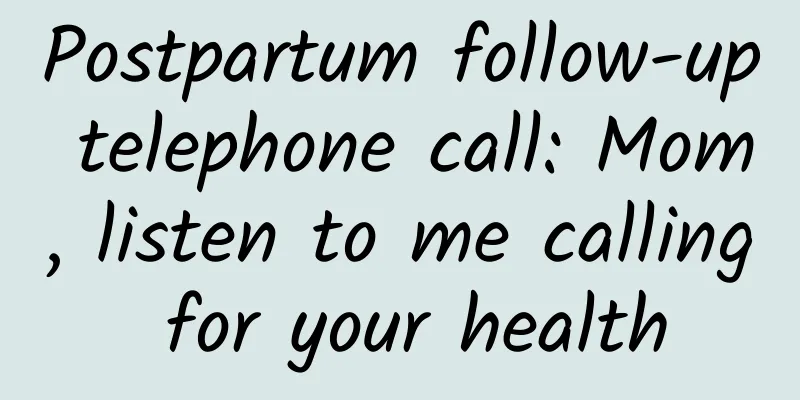Don't neglect the elderly's nighttime health care

|
People over 65 years old often suffer from chronic diseases, and stroke, coronary heart disease, diabetes, chronic bronchitis and emphysema always occur unexpectedly, and about half of them occur at night or in the early morning. Therefore, in order to prevent accidents at night, special attention should be paid to the following points: 1. Go to bed on time The best way to maintain good health is to go to bed on time at night. When you are tired, go to bed; the elderly must go to bed before 22:00 to maintain adequate sleep quality (6 to 8 hours of sleep per day). 11:00 pm to 6:00 am the next morning is the best time to sleep, so that your body can wake up naturally in the morning instead of relying on an alarm clock. 2. Sleep like a domestic cat Most of the time, domestic cats sleep by lying on their right side with their hind legs slightly bent; their right front legs are naturally bent to the right side of their body close to their heads, and their left front legs are naturally downward and slightly straightened. Scientists have confirmed through experiments that after curling up like a cat, the brain can quickly calm down, turning from an excited state to an inhibited state, and soon they can fall asleep. For this reason, it is recommended to adopt the sleeping method of domestic cats to prevent cardiovascular and cerebrovascular accidents in patients with hypertension at night. It is worth noting that elderly people with chronic bronchitis, emphysema and cor pulmonale should sleep in the right side lying position. When coughing badly at night, they should be asked to sit up to avoid airway obstruction caused by coughing and sputum and being unable to spit out, which can endanger their lives. Get up at night to do "three preventions" The elderly are very sensitive to weather changes, and their fragile balance is easily broken. In cold seasons, the body's vasoconstriction and vasodilation functions become abnormal, resulting in reduced renal tubular reabsorption, increased nocturia, and increased frequency. If you are not careful when getting up at night, it may induce some cardiovascular and cerebrovascular diseases. 1. Prevent postural hypotension According to a survey, 15% of people over 65 years old will experience postural hypotension. This is a disease caused by a sudden drop in blood pressure when standing up suddenly from a lying, sitting or squatting position, or standing for a long time. It is most likely to occur when standing up suddenly from a lying position. The key to prevention is to avoid getting up in a hurry. If you have to get up at night because you have to urinate, move slowly and sit quietly in bed for a few minutes. Do not get up suddenly to avoid postural hypotension and micturition syncope. Keep warm and put on an extra layer of clothing to prevent blood vessels in the subcutaneous tissue from contracting and blood pressure from rising. Once dizziness or blurred vision occurs, sit down or lie down immediately. Generally, a short rest will relieve the symptoms. 2. Prevent falls and fractures. A recent British statistical data shows that the main cause of disability and death among people over 75 years old is falls. The internal factors include balance, gait and mobility problems, visual impairment, taking four or more medications, orthostatic hypotension and cognitive impairment or depression; external factors include stairs that are too dim or too steep, the ground is too slippery, the carpet is loose, there is a lack of protective devices such as handles, and the light switch cannot be reached. When the elderly get up to urinate in the middle of the night, they should turn on the light first and stand up slowly (about 3 to 5 minutes). The lighting in the corridors, stairs, aisles, and bathrooms should be sufficient, and the light should be soft and not glaring, so that the elderly can see the ground clearly to prevent falls and fractures. For the elderly with limited mobility, the floor of each room at home should be flat, and the slight height above the ground may also cause tripping. It is best to sit on a chair with armrests, not a swivel chair with wheels. Note that do not randomly place debris in the passage, especially ropes, and be careful not to be tripped by low furniture around you. Try to avoid climbing stairs, etc. Three Preventions for Stroke: As we all know, stroke always occurs unexpectedly. For example, elderly patients with hypertension quickly get up to open the door or answer the phone after falling asleep at night. These are overlooked details of life that may induce stroke. If there are elderly people with hypertension at home, their children should not call them casually at night (especially after 9 o'clock), and the bedroom phone should be installed on the bedside table within reach. After the elderly fall asleep, they should not respond quickly to the doorbell, phone, etc., and can ask their spouse or children who do not have hypertension to open the door. When you get up to urinate in the middle of the night, it is best to drink a cup of warm water (about 250 ml) to replenish blood volume, dilute the blood, and prevent cerebral thrombosis or cerebral infarction (death). Drinking the same amount of warm water after waking up in the morning can effectively prevent cerebral infarction. In short, the best way to prevent the occurrence of these sudden illnesses is to reduce the number of times you get up at night, or even not get up at night at all. Try the following: Eat only 70% full for dinner, drink less soup (no more than 300 ml), and try to move drinking and eating earlier to avoid excessive blood volume and increased urine output; Take a walk in the park after dinner for about half an hour to increase your body's activity and try to empty your bladder before going to bed. Elderly people with prostate disease should take medicine before going to bed at night to reduce the degree of prostate congestion at night. Elderly people with heart failure or hypertension should take diuretic and antihypertensive drugs in the morning or afternoon, not before going to bed at night. Multiple measures to prevent heart attack In daily life, it is not difficult to find that many patients with cardiovascular diseases (such as patients with coronary heart disease) "fall asleep" at night because they eat too much greasy food for dinner and sleep for 6 to 8 hours at night. The body promotes thrombosis due to lack of water, thus inducing myocardial infarction and falling asleep. In view of this, in order to maintain the balance of the body, patients with cardiovascular diseases should develop a good habit of drinking water regularly at night and pay attention to the timing of drinking water. A. Drink a moderate amount of water one hour before going to bed to reduce the burden on the heart. You can drink a cup of warm water before going to bed at night, that is, boiled water at 30℃~40℃, about 200 ml, which can effectively reduce the burden on the heart; the reason is that the human body's metabolism is slow during sleep, and insufficient water at night will lead to a decrease in urine output, thereby increasing cardiovascular viscosity. B. Drink a cup of warm water when you get up to urinate in the middle of the night (1-2 a.m.). This can correct the body's mild "lack of water" at night in advance - the body loses water through sweating and breathing through the mouth, and the body fluid consumed by getting up to urinate frequently (2-4 times) at night, and it also helps dilute the blood, lower blood pressure, and prevent cardiovascular and cerebrovascular events, such as ischemic stroke and myocardial infarction. C. Elderly people with cardiovascular and cerebrovascular diseases should prepare emergency medicines at their bedside before going to sleep at night. Such medicines as nitroglycerin tablets and amyl nitrite. When angina pectoris occurs at night, you can reach the medicine with just your hand, which can save time for emergency treatment. Before going to the toilet at night, you should bring nitroglycerin and other emergency medicines into the bathroom so that you can take them in time in case of an emergency. Try not to lock the door when going to the toilet to prevent accidents. Some elderly people may not even be able to make a sound after a dangerous situation. A call bell should be installed in the toilet where the elderly can reach it to facilitate quick first aid in case of an accident. Prevent asthma attacks at night Studies have shown that asthma is most common at midnight and before going to bed, accounting for about half of all asthma attacks. If there is an asthma patient at home, aerosols and antiasthmatic drugs should be prepared for emergency. When an asthma patient has an attack at night, the first thing to do is to open the window to let fresh air into the room, and then help the patient sit up on a straight-backed chair with his hands around the upper corner of the chair. If an inhalation aerosol is available at home, glucocorticoids (such as percloracone propionate aerosol or becodone) can be inhaled immediately. The correct way to inhale the aerosol is to shake it with a little force before inhaling the aerosol, point the nozzle to the patient's open mouth, face up, take a deep breath, and then press the valve 2 times each time, then hold your breath for 10 to 30 seconds to get as much medicine into the lower respiratory tract (lungs) as possible. If there is no aerosol at home, you can choose one of the following antiasthmatic drugs, such as aminophylline, broliconide or salbutamol tablets. It must be pointed out that when asthma attacks, patients are prone to dehydration due to open mouth breathing, drinking less water, and sweating more, which worsens the condition. At this time, drinking a lot of warm water (at least 500 ml per night) can help prevent dehydration and relieve asthma symptoms. If the attack at night manifests as difficulty breathing, cyanosis of the face and lips, and profuse sweating, rush to a nearby hospital for emergency treatment. Preventing Diabetes from Having Low Blood Sugar in the Middle of the Night Elderly diabetic patients are prone to hypoglycemia. The main reasons include excessive use of medication, eating too little, excessive physical activity, and not eating on time. Hypoglycemia refers to fasting blood sugar concentration of less than 2.8mmol/L in adults. However, hypoglycemia can be diagnosed in diabetic patients when the blood sugar value is ≤3.9mmol/L. Symptoms of nocturnal hypoglycemia include palpitations, fatigue, sweating, hunger, pale complexion, nausea and vomiting, etc., while more severe hypoglycemia often manifests abnormalities in the central nervous system, such as confusion, mental disorder, limb paralysis, incontinence, lethargy, coma, etc. Frequent episodes of severe hypoglycemia can cause great harm to patients, including memory loss, slow reaction, dementia, and coma. The harm of severe hypoglycemia is even greater than that of short-term hyperglycemia. Some middle-aged and elderly patients will suffer from cerebrovascular accidents, arrhythmias, and myocardial infarction, which may even endanger their lives. The treatment of hypoglycemia is very simple. Symptoms will improve after taking concentrated sugar water at home. If conditions permit, 40 to 60 ml of 50% glucose can be injected intravenously at home, and the patient will become conscious and the symptoms will be significantly relieved in 5 to 10 minutes. If conditions do not permit, call "120" immediately and rush to a nearby hospital for emergency treatment. |
<<: Health knowledge on the cutting board
Recommend
hcg test
The hcg value of the human body changes with the ...
Is it serious if a pregnant woman's blood pressure is 90 out of 140?
Nowadays, most women want to live a single life, ...
What kind of garbage does the puffed food packaging bag belong to? How to choose puffed food
Puffed food is becoming a favorite food for the g...
I pay tribute to those who fought with me, and thank the patients who supported and cooperated with our work.
With mixed feelings, I walked into the cinema and...
What to do if the breasts are blocked and there is no milk
After a woman becomes pregnant, her body begins t...
Seven symptoms of kidney deficiency in women, check if you have any
Kidney deficiency is not exclusive to men. Women ...
How long does it take to discharge lochia after a normal birth?
After a pregnant woman gives birth to a child, th...
Can I eat bitter melon during menstruation?
As we all know, menstruation is a very special an...
What should I do if an employee is diagnosed after returning to work? Who is responsible if an employee is infected after returning to work?
What should we do if an employee is diagnosed wit...
26 weeks fetus picture
At 26 weeks of pregnancy, the estimated weight of...
What are the nutritional values of apples? What are the benefits of eating an apple before bed?
Apples are a daily fruit and can be eaten in many ...
When will Wu Xin: The Monster Killer Season 3 be broadcast? Will Yue Qiluo be in Wu Xin: The Monster Killer Season 3?
Looking at the trailers of various dramas on majo...
Vulva mouth redness and itching pictures
Many women may have experienced swelling and itch...
What does it mean to have a dream after pregnancy?
Everyone is familiar with Zhou Gong's Interpr...
Will I gain weight if I take Yasmin?
Will taking Yasmin make you fat? Many people thin...









